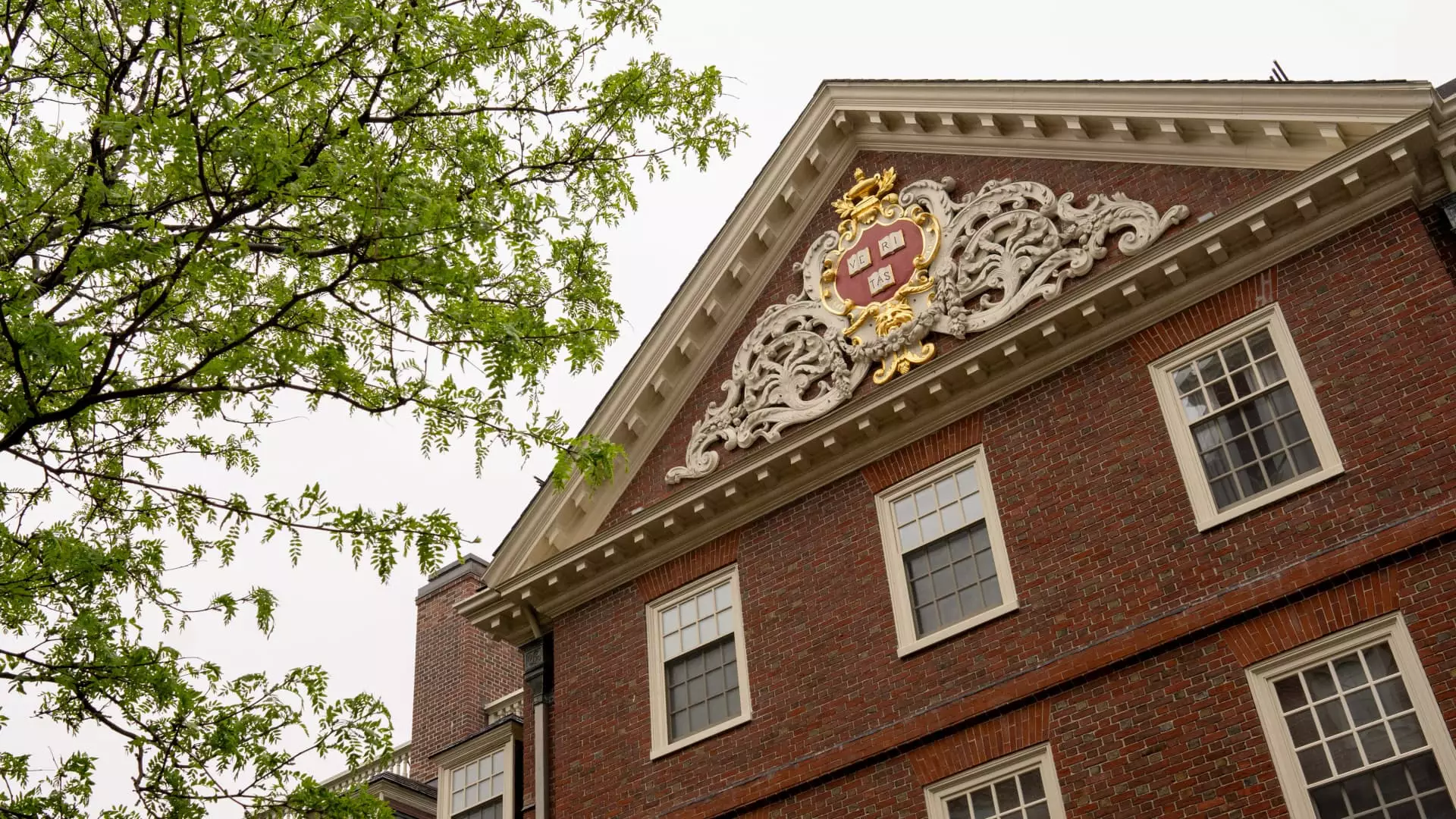In yet another display of political bravado, former President Donald Trump has signaled his intent to redirect an astonishing $3 billion in federal grant money away from Harvard University, aiming to funnel it into trade schools. This move not only defies long-established practices regarding higher education funding but also embodies a troubling pandering to populist sentiments that prioritize vocational over academic learning. Trump’s strategy reflects a profound misunderstanding of educational value and a perilous disregard for the institutions that contribute significantly to societal advancement, primarily through research and innovation.
By laying siege to such a venerable institution, Trump is engaging in a cultural battle that targets more than just the Harvard elite—it challenges the very foundation of academic independence in America. His social media rants, rife with derogatory labels towards Harvard’s faculty, do more to stoke division than promote constructive dialogue about educational funding and priorities. When the President labels esteemed professors as “Radical Left idiots,” he diminishes the discourse around academia to mere insults.
A Stranglehold on Academic Freedom
Trump’s actions come amid his broader campaign against what he perceives as a liberal bias in elite universities. The administration has recently sought to block Harvard from enrolling international students, a move described by the university as not only unconstitutional but also detrimental to American diversity in education. Harvard’s international enrollment is not just a technical statistic—it’s a vibrant tapestry of global perspectives that enrich the academic environment. By proposing harsh restrictions, Trump’s administration risks isolating American universities on the global stage and forcing them to operate in a vacuum of narrow ideological conformity.
The revocation of federal grants—a tactic Trump seems all too willing to employ—raises significant legal and ethical questions. Harvard has mounted a legal challenge against the withholding of funds, arguing that it threatens the foundational principle of free speech by retaliating against an institution for its ideological stance. Rather than fostering an environment where diverse academic thought can flourish, these measures push towards homogeneity, encouraging compliance over creativity.
The Economic Nonsense of Federal Grant Redirection
Redirecting significant funding that has historically supported critical research to trade schools overlooks the realities of what such grants are intended for, primarily biomedical studies funded by agencies like the National Institutes of Health. Trump’s argument for pouring those funds into trade education appears insincere and simplistic, as biomedical research and technical training serve different, though equally crucial, roles in society. It’s as if Trump envisions a zero-sum game, asserting that support for academia necessarily devalues vocational training—a false dichotomy that undermines the nuances of educational value.
While investment in trade schools is commendable and necessary for workforce development, turning against established educational institutions, in this case, is more about placating his base than a rational economic strategy. Rather than make a case for the importance of vocational education, Trump’s focus on penalizing elite institutions feeds into a narrative that paves the way for further educational divides and societal rifts.
A Dangerous Precedent for Future Governance
Trump’s crusade against Harvard and similar institutions isn’t merely an isolated episode; it reflects a worrying trend where government leaders attempt to exert control over academic narratives and institutional operations. This undermines the separation necessary for universities to operate as bastions of free thought and inquiry. The campaign against elite universities stands to impose a chilling effect on advocacy and dissent within academia, as professors may tread carefully in expressing opinions that may diverge from governmental views.
In this highly politicized climate, the repercussions extend beyond academia. They signal a potential erosion of public trust in higher education as a respected avenue for social mobility and enlightenment. By attempting to reshape the academic landscape to align with his distorted worldview, Trump risks fostering an environment where political influence dictates educational value, a trajectory that undermines the very essence of higher learning.
Trump’s actions represent a dangerous flirtation with authoritarianism under the guise of populism—a means to dominate the narrative surrounding education in America. As citizens, we must insist upon an educational system that recognizes the importance of all forms of learning without succumbing to the whims of political posturing.


Leave a Reply